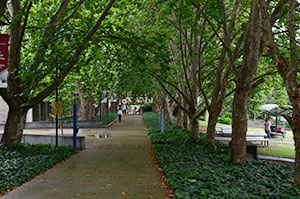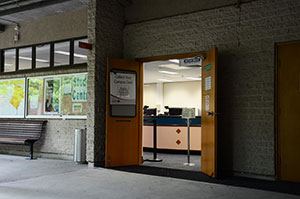
Wally's Walk
Studying and Time Management
A university student will have many competing factors as they study through the duration of their degree, these may include social, work, as well as family, on top of their own studies. Learning how to properly manage these varying aspects becomes even more important during times of high stress and which factors you should prioritise.
It is important to figure out where university fits into your lifestyle, for some people it may be the most important thing, for others it may well rank below other more important commitments. It all depends on the individual, but it is important to understand how you will react and what mindset you will be taking into study so that you can prepare relevant strategies to help you achieve your goals.
“X amount of study = X grade”
This general idea that a certain amount of studying means you will get a certain grade is not an uncommon belief. Intuitively it makes sense, however as the over used adage says “quality over quantity”.
Each individual is unique, and it would only be fair to approach each individual in a unique way. Instead of having one “Golden Method” for Studying and Time Management, it would be more prudent to have one “Golden Method” for Studying and Time Management for each individual.
Below you will find a list of tips and tools that may help aid with your Time Management, and the key is to find or develop a way that will work for YOU.
- Diaries/Planners/Calendars: for those of a conscientious mind, diaries/planners/calendars may be the way to go. They’re great for keeping track of social events, assignment due dates and personal items.
- Online Calendars such as iCal or Google Calendar can be an alternative to a diary/planner/calendar, especially if you’re not a technophobe! These calendars also have in-built alarm functions to alert you to due dates and other important events
- Checklists/To-Do lists may be more suited for the few that steer away from the rigidity of a calendar/diary
Once you’ve settled on a method of how you will organise your time, a method of using that time wisely would be your next consideration. Again, below you will find a list of tips and tools that facilitate quality learning, and the key is to find or develop a method that will work for YOU.
- Comprehensive note taking for those who prefer structure
- Summative note taking for those who prefer “free thinking”
- Mind maps can help organise and bring into focus how topics of Units may interrelate or not
- Study groups are a neat way of studying (given you’ve found an appropriate group of peers)
- Family and friends can be a good source for study. If you can explain something to them and ask them to explain it back to you, then you can be confident you’re studying is working
- Meaning and contextualisation are key for keeping your information embedded in your mind; reorganising lecture material to reflect something meaningful and relevant to you increases the odd that you’ll remember it
 Return to home
Return to home
